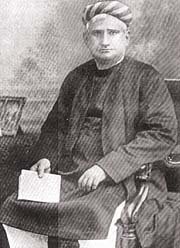Shams Ur Rehman Alavi
Often it happens, that some Muslims in India rue, 'we are not snatching their jobs, we don't have adequate representation, we are being demonized, we are being lynched, still why the majority doesn't understand us or feels sympathy'. Why there is hate or anger?
A lot of it is valid and as a person belong to minority community, it would seem so that they we are wronged. We want justice but are we doing justice? Just after the Ayodhya verdict, I saw posts in FB groups about pictures of RSS leaders with Muslim Ulema. On pix of Shia leader with Sangh-BJP leaders, there were comments that would disgust you.
After all, when we don't trust own minority, always suspect-accuse them, and forget how many of mainstream Sunni leaders go-meet, involved all sorts of parleys but still target 'own minority'. Many of us publicly act suave but we too are like a 'mob'. We want our minorities too to 'behave'. It is so easy to term any sect 'Kharijite' in normal conversation.
I don't generally talk about Pakistan. But see, when you don't consider Ahmadiyyas as 'Muslim', leave them alone or give them the rights for a non-Muslim minority but you are angry, as they are not on your path, so the less than 0.5% minority is always an eyesore.
So much energy is spent on conferences, morchas on the issue, as if Ahmadiyyas are a huge sect. No, they are not but the moment you have a leader or politician behaving against norm, you start whisper campaigns that he is 'Qadiani'. Why do you feel so insecure, so threatened?
Clearly, a minority has to abide by certain rules. So when you have a huge minority, not 0.2-.4% but 15% around in India, here too majority will feels 'threatened', that they were 'own people' who got converted and now creating trouble, similar feelings.
The majority may get upset if you retort or even if you talk like equals. So that's how mindset of majority works. The reality is that not everyone will get a good job or earn well. Rather than looking for reasons behind our failure, it's very easy to blame the 'other', the minority, believing that things would have been better without them.
And also 'hate' as a passion, drives people, gives them the 'jeene ka maqsad', the kick many need.
Just sometime ago, I got message (from Muslims) calling for boycott of Mulla (Bohra) businesses. Now imagine, in a country where we face it--calls for boycott of Muslims, and we feel so hurt, many of us do it so casually and no one is bothered.
We don't even 'see' or talk about this blatant badmashi. That's majoritarian privilege within the community. When leaders of Barelvi or Deobandi school go to meet right-wing leaders, whose boycott are you going to call for?
Anyway, the levels of majoritarianism also depends on how 1-2 leaders may succeed in a society or by misuse of mass media. All this needs to be analyzed and tackled. But we must also keep introspecting, when we expect justice, we should also do justice.
Sometimes we have to get out of the 'complaining mode' or tackle the media-created image of minority. It needs an effort but it is not impossible. There are several successful examples. But we must be ready to accept our own failures, our drawbacks and must not lose our cool the moment we hear a contradictory opinion or hear our criticism.
Right now, we are facing injustice, a lot has happened that depresses us, that takes us to negativity. But we are facing a group that worked hard for eighty years, the right-wingers who have democratically got power, worked extremely hard to achieve the objective. We need to improve ourselves, learn, introspect and work.





















































